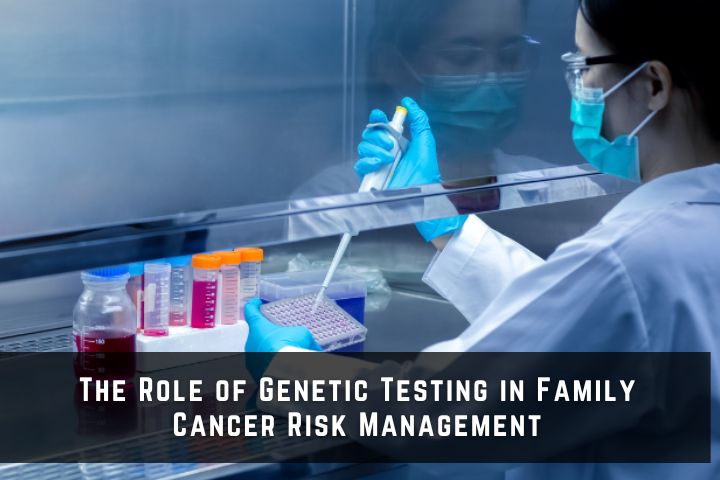Cancer is often perceived as a disease of chance, but in many cases, genetics plays a major role. Families with a history of certain cancers—such as breast, ovarian, prostate, or colorectal—may carry inherited gene mutations that significantly increase their risk. This is where genetic testing becomes a powerful tool for prevention, early detection, and personalized treatment.
By identifying these inherited mutations before cancer develops, individuals and families can take proactive steps to manage their health. Understanding genetic risks allows doctors to design tailored surveillance programs, lifestyle recommendations, and even preventive interventions.
1. Understanding Genetic Testing and Its Importance
Genetic testing involves analyzing a person’s DNA to look for specific mutations that may predispose them to cancer. These tests target genes known to influence cancer development, such as BRCA1 and BRCA2 (linked to breast and ovarian cancer), MLH1 and MSH2 (related to colon cancer), and TP53, which affects multiple cancer types.
The process typically begins with a consultation with a genetic counselor or oncologist, who evaluates family history and determines whether testing is appropriate. A small blood or saliva sample is then analyzed in a specialized laboratory to identify any harmful mutations.
The results of genetic testing can guide both preventive and therapeutic decisions. For instance, individuals found to have a BRCA mutation can opt for earlier mammograms or MRI scans, lifestyle changes, or even risk-reducing surgeries. Moreover, in cases where cancer has already developed, genetic information helps oncologists choose the most effective targeted therapies—making treatment more precise and personalized.
2. Family Risk Management: Prevention Through Knowledge
One of the most powerful aspects of genetic testing is its ability to benefit not just individuals, but entire families. When a person tests positive for a hereditary cancer gene, their relatives can also be tested to determine whether they share the same mutation.
This process, known as cascade testing, allows families to map out their genetic risk and take proactive measures. Preventive strategies may include:
-
Enhanced screening – Regular colonoscopies, mammograms, or ultrasounds to detect cancer early.
-
Lifestyle modifications – Adopting a diet rich in antioxidants, quitting smoking, and maintaining a healthy weight.
-
Chemoprevention – Taking medications that reduce cancer risk, under medical supervision.
-
Preventive surgery – For high-risk individuals, surgery may be considered to remove at-risk tissue before cancer develops.
Importantly, genetic counseling is an essential part of this process. Counselors help families interpret complex results, discuss emotional and ethical implications, and plan appropriate next steps. This holistic approach ensures that families are empowered with knowledge—not fear.
3. Ethical and Emotional Considerations
While genetic testing offers incredible advantages, it also raises emotional and ethical challenges. Learning that one carries a hereditary cancer gene can cause anxiety, guilt, or fear—especially when considering family members who might share the same risk. Some individuals may struggle with the decision of whether or not to get tested, or how to share results with relatives.
There are also concerns about privacy and genetic discrimination. Many countries have enacted laws to protect individuals from misuse of genetic information by employers or insurers. Still, proper genetic counseling and informed consent remain crucial to ensuring that individuals make choices that align with their personal values.
Ultimately, the goal of genetic testing is empowerment—not alarm. When used responsibly, it helps families make informed, proactive decisions that can dramatically reduce the impact of cancer for generations to come.
Advanced Genetic Cancer Care at Dr. A.V. Cancer Institute
At Dr. A.V. Cancer Institute, we integrate the latest advancements in genetic testing with compassionate patient care to create personalized cancer prevention and treatment strategies. Our team of expert oncologists and genetic counselors provides comprehensive risk assessment, genetic evaluation, and family counseling in a safe and confidential environment.
With cutting-edge diagnostic tools and a focus on ethical, evidence-based care, Dr. A.V. Cancer Institute offers the best services in family cancer risk management and genetic testing. We empower patients with knowledge, guide them with compassion, and protect generations with precision-driven oncology.
Dr. A.V. Cancer Institute — where innovation meets trust in the fight against cancer.

